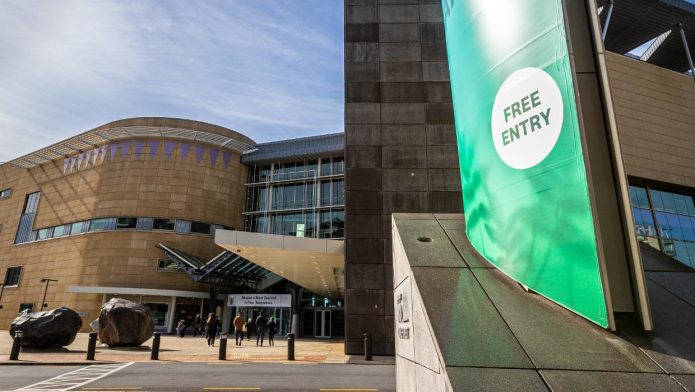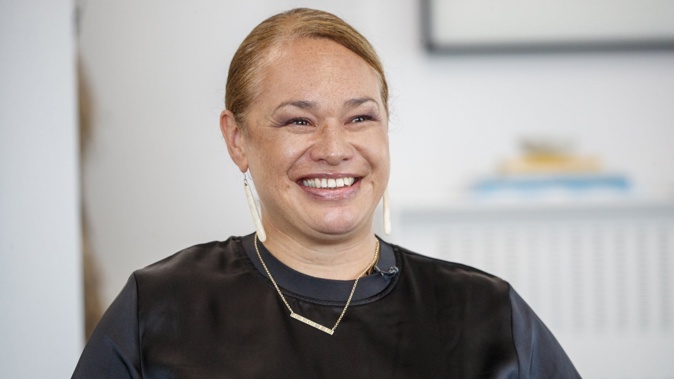PHOTO: Queensland’s REIQ has made a string of serious accusations against the national industry body, the REIA.
The Real Estate Institute of Queensland has launched a withering attack on the credibility, value and behaviour of the national Real Estate Institute of Australia, while a “baffled” REIA has defended its position and described the REIQ’s comments as disappointing.
In response to a publicly issued plea from the REIA for the REIQ to rejoin the national body that it parted from in 2015, the REIQ on Thursday (7 July) accused the REIA of resorting to “bullying and calculated, underhanded tactics in an endeavour to destabilise the REIQ’s solid membership foundation.”
The REIQ claimed to be in possession of leaked documents outlining “the REIA’s sordid campaign” and refuted the REIA’s official assertion that the REIQ was the only Australian real estate institute (REI) not to be a member of the national body.
The REIA insisted in discussions with Australian Property Investor Magazine on Friday that all other states and territories were still members and denied the claim by the REIQ that “at least one other REI is no longer a member of the REIA.”
We find ourselves confronted with an industry dummy spit that is demeaning and embarrassing…
– REIQ statement
REIQ’s withdrawal from the national body seven years ago was based on financial considerations.
The state body, under the leadership of chief executive Antonia Mercorella, said that REIA restructuring to become more cost effective had not gone far enough.
“Put simply, the REIA wasn’t offering value for money and the REIQ could not justify the exorbitant annual $300,000 membership and associated fees that offered little or no value to our boots on the ground members,” the REIQ statement said.
“Our stakeholders rightly expect us to utilise our precious and limited financial and human resources to best serve all concerned.
“The REIQ acknowledges the REIA has since made some progress in restructuring its operations to be more cost effective, however, it remains our view the REIA’s focus is misaligned to what a truly effective national body should be, and it is still not in our interests and the interests of our membership to re-join.”
The REIA countered, telling API Magazine these claims were exaggerated.
“The last time REIQ was offered to re-join REIA in 2021 their annual fee would have been $159,479 per annum, which represents an annual cost per state member agency of $149 a year.”
The REIQ statement went on to criticise the REIA’s culture, communications and member service.
“The REIA’s recent poor behaviour, and unkind communications strategy only reinforces the reasons why the REIQ issued our resignation, as have other REIs during their history, noting lack of value and poor REIA member experience.
“REIQ representatives recently offered to meet with the REIA to no avail, and instead we find ourselves confronted with an industry dummy spit that is demeaning and embarrassing, not only for the REIA but for the real estate industry as a whole.
“Moving forward, it’s hoped the REIA takes a hard look at its governing culture and operations and addresses internal issues which have led to the REIQ and other REI’s leaving its ranks over time.”
REIA slashed costs
The REIA, headed by its President Hayden Groves, responded by saying it was “disappointing that a non-member body of REIA has chosen to respond in this way and remain isolated on the national stage”.
“That is their choice and we respect that,” the national body added.
“Our firm focus is on restoring national representation to REIA and ensuring Queenslanders have input into our work.”
The REIA, which will mark its 100th anniversary in 2024, said costs for members had nearly halved since the REIQ withdrew from the national scene in 2015.
“At that time, REIQ’s cost per agency member to contribute to REIA was around $200 per year, whereas today, it would be far less.
“Regrettably, all attempts to re-engage REIQ since 2015 have ultimately failed,” the REIA said.
Queensland’s recalcitrance in regards to re-entering the national fold has prompted the REIA to go it alone in the state with its own representative.
“We must look beyond the limitations of the current federated model to achieve our core business and ensure true two-way national representation,” the REIA said in its online Statement on Queensland.
The statement outlined its plan by saying, “To this effect, in order to best represent and work for Queensland nationally, REIA will:
- appoint an Independent Queensland based director with significant real estate expertise
- establish ongoing Queensland based consultation mechanisms to ensure direct practitioner input into the work of REIA
- create pathways for Queenslanders to compete in our industry excellence programs
- ensure REIA is always available to respond to and hear the concerns of the Queensland industry.”
REIA added that it had no plans to expand its business to undertake any core functions of state institutes, such as training.
A media spokesperson for REIA told API Magazine that the Queensland body had in the past continued to seek input and services from REIA despite choosing to be a non-member.
“This came to an end in 2021 and as a consequence of REIQ’s non-membership, REIA recognised the need to engage the industry in Queensland.
“REIA is baffled as to how our Queensland practitioner-based inclusive approach could be construed as anything other than industry supportive.”
When asked what it would take for Queensland to return to the national fold, an REIQ spokesperson said “it is well understood that the majority of real estate matters and issues are governed by state-based laws.”
“The REIQ has always been open and willing to be part of an effective national real estate body that is focused on its members, being the state and territory institutes, and on national policy issues that impact its membership.”
PUBLISHED WITH PERMISSION | API MAGAZINE
MOST POPULAR IN NEW ZEALAND
 Real estate brand @realty brings 100% commission with no fees to NZ | WATCH
Real estate brand @realty brings 100% commission with no fees to NZ | WATCH Former real estate agent facing bankruptcy charges
Former real estate agent facing bankruptcy charges Real agent is accused of killing pro cyclist | WATCH
Real agent is accused of killing pro cyclist | WATCH Timeshare Saga: Owners still out of pocket
Timeshare Saga: Owners still out of pocket Real estate agent closes 27 sales worth $12 million-plus in a month
Real estate agent closes 27 sales worth $12 million-plus in a month Bank allows homeowners to borrow up to $80,000 at a 3YR fixed rate of 1%
Bank allows homeowners to borrow up to $80,000 at a 3YR fixed rate of 1% Mortgage rates aren’t going to get as high as expected
Mortgage rates aren’t going to get as high as expected From a $10MILLION mansion and successful weight-loss business to grimy prison cell | WATCH
From a $10MILLION mansion and successful weight-loss business to grimy prison cell | WATCH 40 homes closer to being lost after busway decision
40 homes closer to being lost after busway decision Real estate agent whose wife died on their honeymoon when he crashed their island buggy breaks his silence | WATCH
Real estate agent whose wife died on their honeymoon when he crashed their island buggy breaks his silence | WATCH














